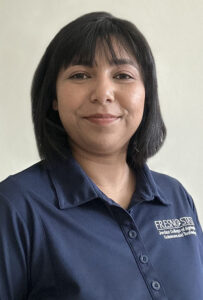FRESNO, CA — The California Water Institute at Fresno State has entered into a formal partnership with Sustainable Conservation on a project aimed at enhancing aquifer replenishment in the San Joaquin Valley. Moreover, the initiative is funded by a generous, almost half-million-dollar grant from the California Department of Food and Agriculture.
Focus on On-Farm Recharge Pilots
Interim director for California Water Institute’s Research and Education Division, Laura Ramos.
To begin, as part of this collaboration, six on-farm recharge pilot programs will be implemented. Specifically, focusing on pistachio orchards. The goal is to study key factors such as nitrate leaching, soil health, and crop yield.
“The California Water Institute has engaged in several activities with Sustainable Conservation in the past, but this collaboration marks a significant development of our partnership,” said Laura Ramos.
Laura goes on to say, “We are looking forward to strengthening our relationship through this grant.”
Sustainable Conservation’s Role in the Partnership
In addition, Sustainable Conservation is a nonprofit organization addressing California’s land, air, and water challenges. Furthermore, in partnership with the California Water Institute, they will explore the potential of on-farm recharge. On-farm recharge is the process of applying surface water to farm fields to help replenish underground aquifers. Consequently, this method has emerged as a promising tool for improving water management in California’s agriculture, which is increasingly affected by climate variability.
Researching Soil Health & Cover Crops

Assistant professor of soil health at Fresno State and co-principal investigator on the project, Dr. Sangeeta Bansal
Additionally, Dr. Sangeeta Bansal, assistant professor of soil health at Fresno State and co-principal investigator on the project, will lead efforts to examine the effects of cover crops on soil health. She will also study how on-farm recharge impacts nutrient cycling and soil hydraulic function.
“During the winter of 2023, farmers proactively flooded their dormant fields to mitigate flood impacts and recharge aquifers. However, there is much more to learn about the interactions between recharge, cover cropping, and resulting water quality,” Ramos said.
Ramos continues, “The California Water Institute is eager to collaborate with Sustainable Conservation and Dr. Bansal to provide the necessary scientific insights for future initiatives.”
Strengthening Agricultural & Water Sustainability
Furthermore, the project aims to contribute to the long-term sustainability of the region’s specialty crop industry. Sarah Castle, senior scientist for Sustainable Conservation, emphasized that on-farm recharge could secure a reliable water supply for the San Joaquin Valley, even as climate patterns become unpredictable. In addition, the practice also offers benefits for water quality and soil health.
“This funding will allow us to further our collective knowledge about on-farm recharge’s potential as a sustainable water management tool,” Castle said. “With insights from these pilot projects, we hope to better understand how cover cropping and recharge can protect California’s water quality, boost agricultural resilience for California’s specialty crops, and foster environmental sustainability.”
Ultimately, the initiative underscores the growing need for innovative water management strategies in California. As well as, highlights the potential of on-farm recharge to balance agricultural productivity with environmental sustainability in the San Joaquin Valley.

Sustainable Conservation collaborates with Fresno State on aquifer projects to promote long-term water and soil health.
